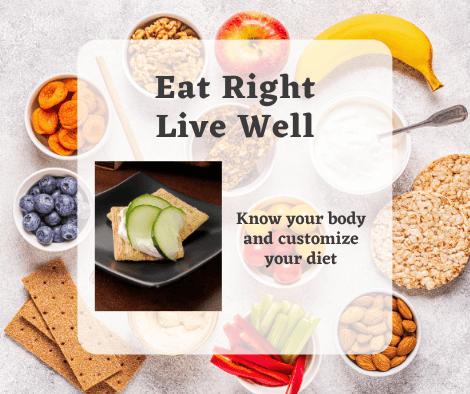- Why Us
-
Brands
- Asterveda
- LivonLabs.
- Liposomal Vitamin C | Supports Natural Collagen Production, Immune System, Antioxidants - 30 Sachet
- Lypo-Spheric R-Alpha Lipoic Acid | Liposomal Encapsulation |Maximized Absorption - 30 Sachet
- Lypo-Spheric Acetyl L-Carnitine | Liposomal Encapsulation Technology
- Lypo-Spheric Vitamin B-Complex Plus | Liposomal Encapsulation Technology
- Lypo-Spheric Glutathione
- Lypo-Spheric Magnesium Threonate
- Qunol
- WellnessExtract
- GG Essential | Annatto Derived Dietary Supplement | Cardiovascular Support For Statin Users
- Tocotrienols Vitamin E 125 mg Supplements | Master Antioxidant
- Tocotrienols Vitamin E - 300mg 30-softgels |Eannatto Deltagold (90% Delta & 10% Gamma)
- Bio-Qunol Ubiquinol (CoQ10) Supplement with 50mg GG gold - 100mg - 60
- Shops
- Blogs
- Contact Us
- More
- Why Us
-
Brands
- Asterveda
- LivonLabs.
- Liposomal Vitamin C | Supports Natural Collagen Production, Immune System, Antioxidants - 30 Sachet
- Lypo-Spheric R-Alpha Lipoic Acid | Liposomal Encapsulation |Maximized Absorption - 30 Sachet
- Lypo-Spheric Acetyl L-Carnitine | Liposomal Encapsulation Technology
- Lypo-Spheric Vitamin B-Complex Plus | Liposomal Encapsulation Technology
- Lypo-Spheric Glutathione
- Lypo-Spheric Magnesium Threonate
- Qunol
- WellnessExtract
- GG Essential | Annatto Derived Dietary Supplement | Cardiovascular Support For Statin Users
- Tocotrienols Vitamin E 125 mg Supplements | Master Antioxidant
- Tocotrienols Vitamin E - 300mg 30-softgels |Eannatto Deltagold (90% Delta & 10% Gamma)
- Bio-Qunol Ubiquinol (CoQ10) Supplement with 50mg GG gold - 100mg - 60
- Shops
- Blogs
- Contact Us
- More
- Home
- Eat right Live well
Eat right Live well
Know Your Body And Customise Your Diet
|
HOW OUR DIET AFFECTS OUR MENTAL AND PHYSICAL HEALTHWe are always taught that once health is lost, everything is lost. And for maintaining a sound mental and physical health, we do not need just food, but a balanced diet. A balanced diet fulfills our nutritional requirements proportionately and helps in improving our cognitive & physical efficiency. Conversely, a poor diet results in early physical or mental fatigue, impaired decision-making abilities, delayed reactions, and lethargy. In fact, an inadequate diet may aggravate stress and depression also.
Various studies claim that our diet is a very important external decisive factor affecting our body’s response to various disease causing agents. Moreover, it helps in comprehensive conditioning and balancing of our mood swings. Even a study named “food-mood connection” highlights the importance of diet in diminishing depression.
Poor dietary habits, like having junk food frequently, has left no space for health maintenance, leaving a healthy and fit lifestyle as a herculean job. Daily fulfillment of nutritional needs should be our regular pursuit for a sound mind and healthy body. It is said that most processed foods stimulate certain centers of our brain that are associated with the feeling of pleasure and reward. This consequently enhances our cravings for such unhealthy foods that contain added sugars and refined carbs. So, the only way out is to say complete no to junk food and welcome a balanced diet in our lifestyle.
GIVE A HEALTHY START TO YOUR DAYSticking to a great eating routine consistently from day to day may help in weight reduction, body & mental energizing, and eliminating risk factors causing certain long standing diseases.
FACTORS AFFECTING OUR DIETARY REQUIREMENTSThe factors that affect the dietary/nutritional needs are:
Conversely, males and postmenopausal females have much lower iron requirements. High iron rich diets can risk them for heart ailments. Since men are more prone to heart diseases, they require some other nutrients like vitamin E and folic acid.
Nutrient interactions also play a vital role in maintaining our body’s nutrient balance. For example, a vitamin C diet enhances iron absorption but the same is downregulated by a calcium diet. Iron absorption is also hindered by polyphenols, which are present in a variety of our regular foods or beverages like tea or coffee. Furthermore, calcium excretion increases due to a protein rich diet.
CLIMATE
TAKING DIETARY SUPPLEMENTS DAILY; A SUPER HEALTHY TRICKWe all are very much aware of the fact that detoxification of the body from heavy metals, toxins and pollutants is equally important as nutrition. Along with this, we need to include more and more antioxidants also in our diet to neutralize the free radicals in our body. These free radicals are formed as the result of our regular activities like respiration, digestion, physical exertion and mental functioning. But these unstable oxygen species tend to attack cell walls and consequently, may damage skin, blood vessels, muscle, bones and various organs of the body like heart. Although dietary supplements cannot be called a “magic pill for wellness”, these can make our way to achieve wellness easier. The right combination of supplementary nutrition which varies person to person can be the super health trick towards our overall well-being. It is a formula of shuttling the right nutrient for the required function. Luckily, science has given such advanced formulas to carry out the measured nutrition, detoxification and anti-oxidation for our body via supplementation. But the matter of concern is that the health stores are fluffed with varied types of supplements. Choosing natural dietary supplements is the first step towards superior wellness. This is because the synthetic supplements come with several unmanageable long-term side effects.
|

 0
0


